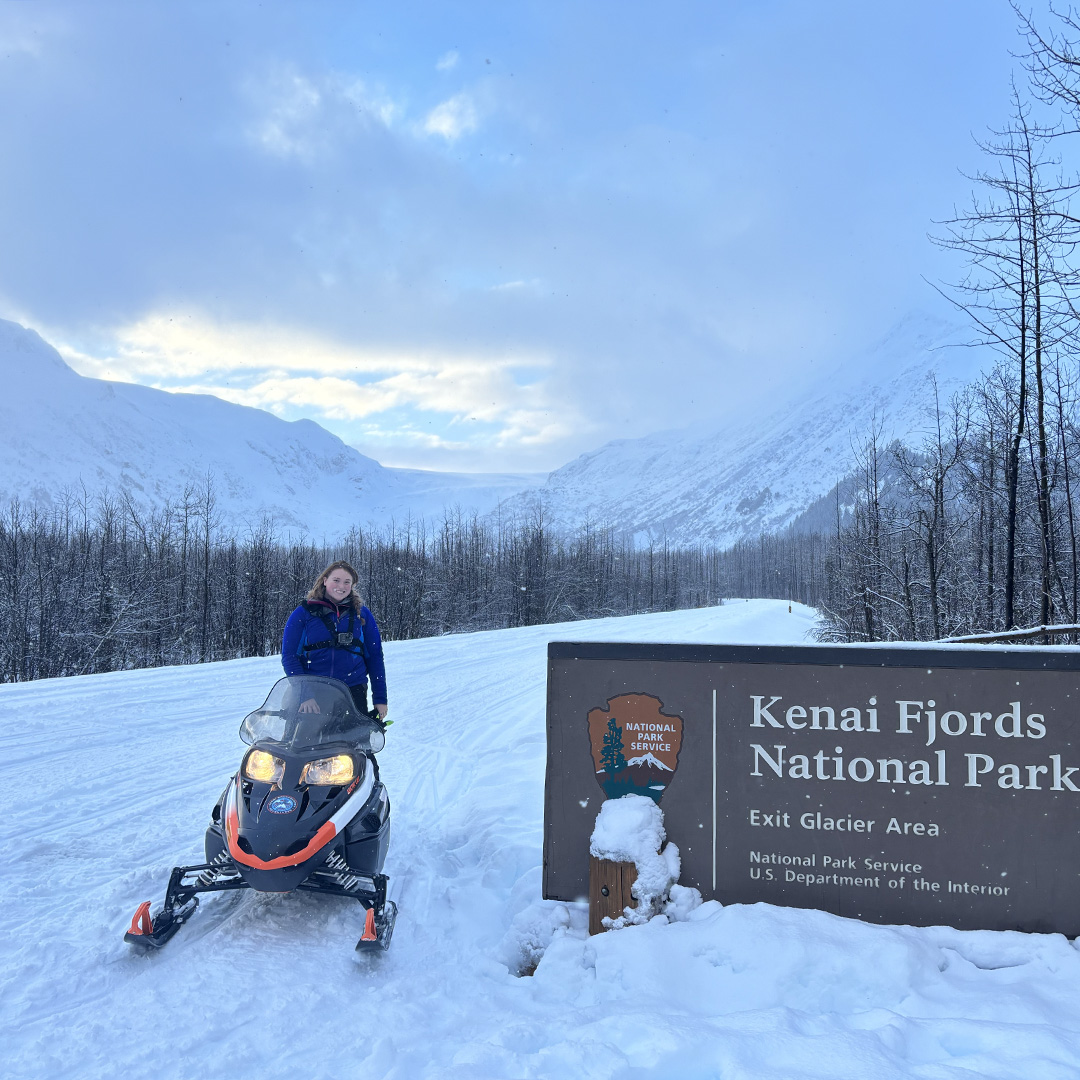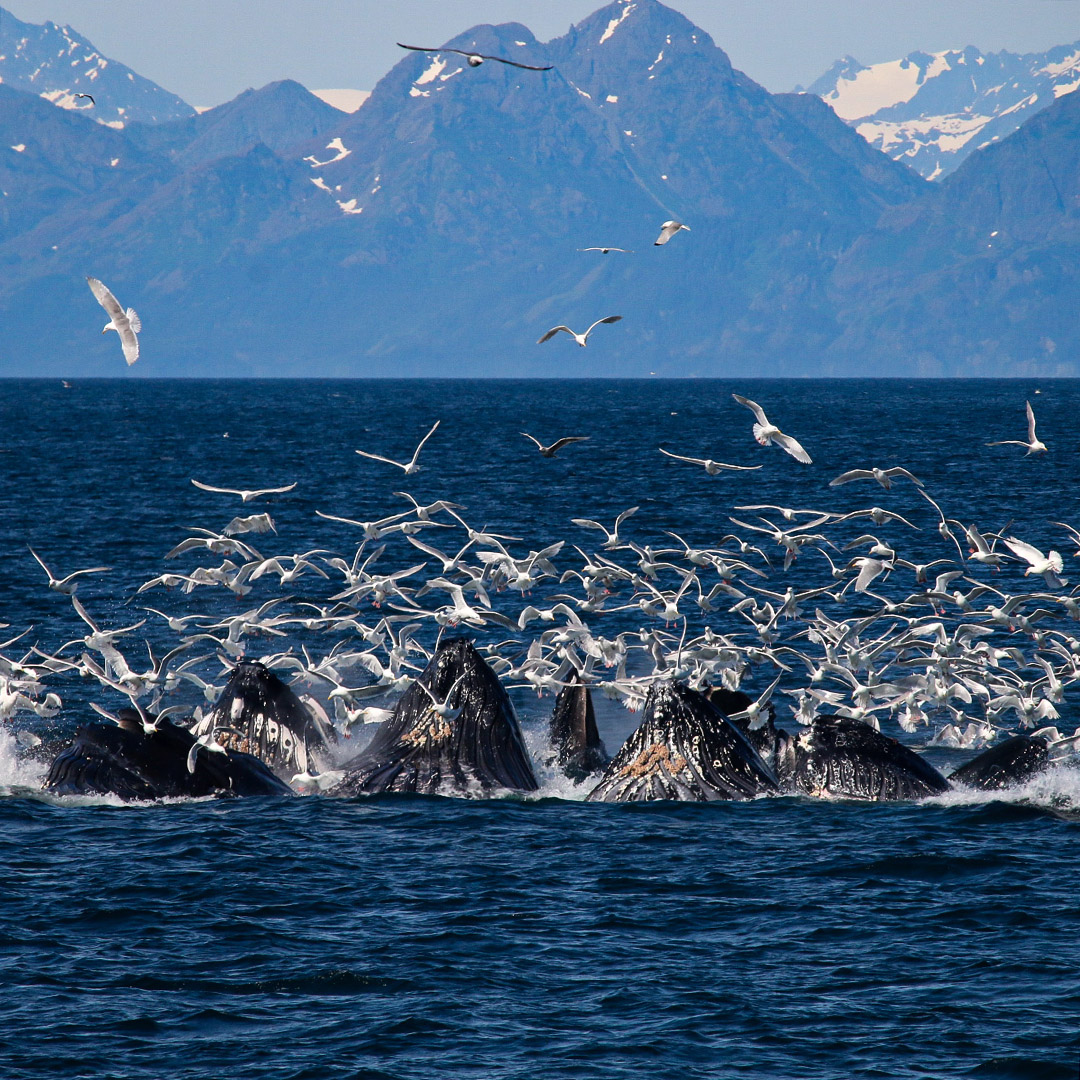Spotlight on Cora McKean
Cora is a laboratory technician in the Ocean Acidification Research Laboratory at the Alutiiq Pride Marine Institute in Seward, Alaska
From an early age, I knew I wanted to be a marine scientist. Growing up, I pictured myself nursing wounded marine mammals back to health or discovering a new species at the depths of the ocean. Little did I know that I would go in a completely different direction of marine science. I landed on oceanography, and more specifically, seawater chemistry. Although it may not be as glamorous to some, it is definitely just as cool!
I graduated from the University of Miami with degrees in Marine Science and Applied Mathematics. After spending nearly five years in Miami, I decided it was time for a change, so I packed up nearly everything I owned and hit the road. 8,114 miles, 36 days, 19 states, 5 national parks, and two countries later, I ended up in Alaska. I have been in Seward, Alaska for one winter and three summers. I began my life in Alaska as a seasonal worker, starting as a deckhand on whale watching and National Park tour boats to the Kenai Fjords National Park (KFNP). This was an amazing experience and definitely something I recommend to anyone who is interested in pursuing a career in the maritime industry, has a passion for marine mammals, or just wants to spend a summer doing something more adventurous than a desk job. Needless to say, I fell in love with Alaska and its amazing beauty… as most people do.

Cora’s first winter in Seward, snow machining in KFNP on her day off.

Humpback whales bubble-net feeding near the Chiswell Islands in KFNP.
While I was working on tour boats in Seward, I also began volunteering at a nearby marine science institute. As the summer season ended and I began to plan my long drive to whatever was next, the laboratory decided to offer me a full-time job. And so began my career in oceanography!
I am now a full-time laboratory technician in the Ocean Acidification Research Laboratory at the Alutiiq Pride Marine Institute. The Alutiiq Pride Marine Institute (APMI) conducts research on numerous topics focusing on coastal and marine ecosystem health. APMI is particularly focused on issues affecting native peoples, animals, and the environment. These topics include ocean acidification, animal behavior and physiology, harmful algae, marine pathogens, mariculture development, habitat restoration, and preservation of subsistence and recreational harvest opportunities.
When I’m onshore, I run seawater samples through a device known as the Burke-o-Lator (BoL). The BoL analyzes the sample for a variety of parameters including dissolved inorganic carbon (DIC) and carbon dioxide partial pressure (pCO2). This instrument is used by our laboratory to monitor ocean acidification in tribal communities in the Chugach region. The data I collect is transformed into figures and is used to help assess the threat of ocean acidification on shellfish that are harvested for subsistence.

The Burk-o-Lator in the ocean acidification research lab at APMI measures a variety of oceanographic parameters. Image by APMI.
My love for adventure and exploring new places brought me to the Southern Ocean on GO-SHIP I08S. While on board, I am analyzing samples for pH using spectrophotometry. Spectrophotometry is basically just a really fancy way of using color-changing paper pH strips, except this machine uses colored dye and light rays.
Although we were not able to see the Antarctic continent, this has been a terrific experience and a true test of my sea legs (I’ve only puked once). I feel incredibly lucky to be surrounded by such accomplished oceanographers and hope to join more GO-SHIP cruises in the future!

Cora sits at the pH analysis system onboard the R/V Thompson. Image by Jennifer Magnusson.
All images by Cora McKean unless otherwise noted.
